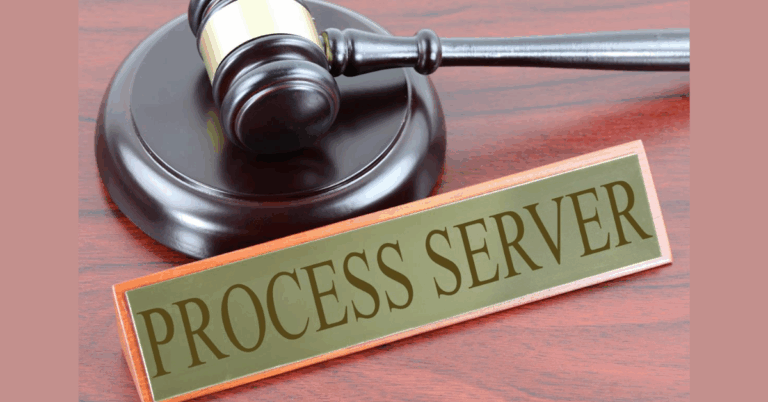Reliable Process Server Services in Arizona: Your Trusted Partner for Legal Document Delivery
In Arizona, the delivery of legal documents—known as service of process—is a critical step in any legal proceeding. Whether you’re a lawyer, business owner, or private citizen, ensuring that these documents are served properly and on time can be the difference between a smooth legal process and costly delays.
That’s where professional process servers come in. This blog explores the role of Process Server Arizona AZ, how they operate, the legal requirements, and why choosing an experienced local service is essential to your case.
What Is a Process Server?
A process server is a person who delivers legal documents—such as summonses, complaints, subpoenas, and court orders—to individuals involved in a lawsuit or legal action. Their job is to notify recipients officially and legally that they are required to respond or take action regarding a legal matter.
Process servers must follow strict rules governing how documents are served to ensure the process respects the recipient’s rights and the legal system’s integrity. Improper service can result in delays or dismissal of cases, making the role of the process server indispensable.
Why Professional Process Serving Matters in Arizona
1. Compliance With Arizona Laws
Arizona has specific statutes and rules regarding service of process. Professional process servers understand these laws thoroughly, ensuring that your documents are served according to state requirements and court rules.
2. Valid Proof of Service
After delivering documents, process servers provide an affidavit or certificate of service confirming the details of the delivery. This proof is often required by the court to show that service was completed properly.
3. Efficiency and Timeliness
Legal proceedings often have strict deadlines for serving documents. A professional server knows how to locate recipients quickly and deliver papers efficiently, helping you avoid delays.
4. Local Expertise
Arizona’s diverse geography includes urban centers, rural areas, and tribal lands, each presenting unique challenges for service. Local process servers have the knowledge and tools to navigate these environments effectively.
How Process Serving Works in Arizona
Step 1: Submit Documents and Information
Clients provide the process server with the legal documents to be served and any details about the recipient, such as name, address, or workplace.
Step 2: Locate the Recipient
The process server uses this information, plus local resources and investigative tools like skip tracing, to find the recipient, especially if they are avoiding service or have relocated.
Step 3: Serve the Documents
Service is usually done by personally handing the documents to the recipient. If personal service is not possible, Arizona law allows alternative methods such as substituted service (leaving documents with someone at the recipient’s home or business) or service by certified mail under certain conditions.
Step 4: Provide Proof of Service
The process server completes a sworn affidavit detailing when, where, and how the documents were served. This affidavit is vital evidence for the court.
Legal Requirements for Process Serving in Arizona
Who Can Serve: Anyone 18 years or older who is not a party to the case and not interested in its outcome can serve documents.
Methods of Service: Personal service is preferred, but substituted service and service by mail are allowed in some situations.
Proof of Service: The process server must complete and sign an affidavit or certificate of service.
Timeliness: Certain documents must be served within specific deadlines to keep legal proceedings on track.
Understanding and following these legal requirements ensures your service is valid and your case proceeds without unnecessary hurdles.
Common Documents Served by Process Servers in Arizona
Process servers in Arizona deliver a wide range of legal documents, including:
Summons and Complaints: Officially inform defendants about lawsuits.
Subpoenas: Require individuals to appear in court or provide evidence.
Eviction Notices: Notify tenants about lease termination or eviction actions.
Restraining Orders: Inform individuals about protective orders.
Divorce Papers: Serve petitions and related documents.
Wage Garnishments and Other Court Orders: Notify parties of court-mandated actions.
Each document may have specific service requirements, making professional expertise important.
Challenges in Process Serving and How Professionals Overcome Them
Geographic Diversity
Arizona’s vast deserts, mountain regions, and urban centers mean process servers must adapt their approach depending on location. Experienced servers know how to handle the logistics efficiently.
Hard-to-Find Recipients
Some individuals may deliberately avoid service or have moved. Process servers use investigative tools like skip tracing and databases to locate such individuals.
Language and Cultural Barriers
Arizona’s diverse population includes many non-English speakers. Skilled servers handle service with sensitivity to language and cultural differences.
Complex Legal Requirements
Different cases and documents have different rules for service. Experienced servers ensure all legal procedures are followed to prevent challenges to service validity.
Why Choose a Local Arizona Process Server?
Knowledge of Local Courts and Rules: Local servers understand Arizona’s specific court procedures.
Faster Service Times: Proximity allows quicker document delivery.
Personalized Service: Local companies often provide better communication and responsiveness.
Additional Services: Many offer mobile notary, document retrieval, and court filing services.
Frequently Asked Questions (FAQs)
Q1: How quickly can documents be served in Arizona?
A: Most documents are served within a few days. The time depends on the recipient’s location and availability.
Q2: What if the recipient is avoiding service?
A: Process servers use skip tracing and investigative methods to locate individuals. If service is impossible, legal alternatives may be pursued.
Q3: Can documents be served by mail in Arizona?
A: Under certain conditions, some documents can be served by certified mail, but personal or substituted service is generally preferred.
Q4: What happens if the recipient refuses to accept the papers?
A: Service can still be completed by leaving the documents in the recipient’s presence or with an authorized person.
Q5: Is an affidavit of service always required?
A: Yes, it is the official proof that documents were served properly.
Conclusion
Proper service of legal documents is a foundational step in any legal action. In Arizona, with its unique mix of urban and rural environments, professional process servers are essential to ensuring your documents reach the intended recipients in compliance with the law.
By choosing a trusted local process server in Arizona, you gain peace of mind that your legal documents will be delivered accurately, confidentially, and on time—helping to keep your case on track and protect your legal rights.
If you need reliable and professional process serving services anywhere in Arizona, consider working with a knowledgeable local expert to handle this critical task efficiently and effectively.







